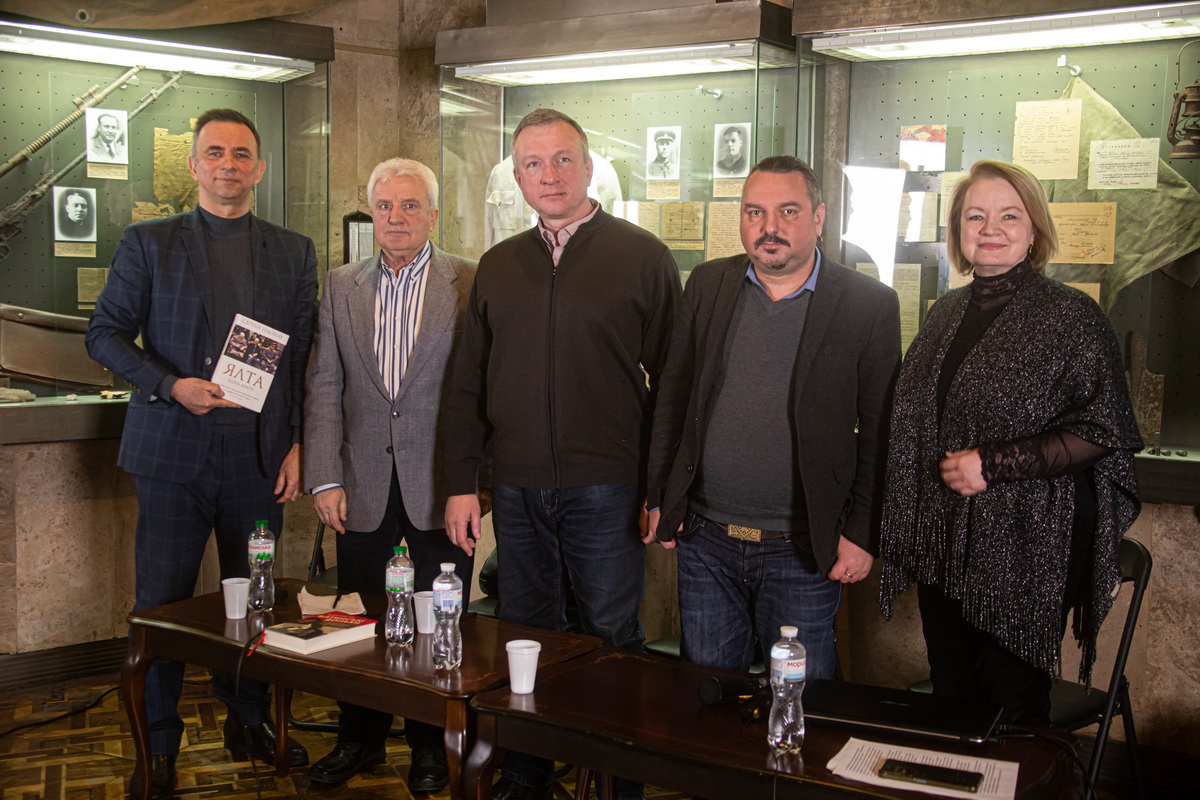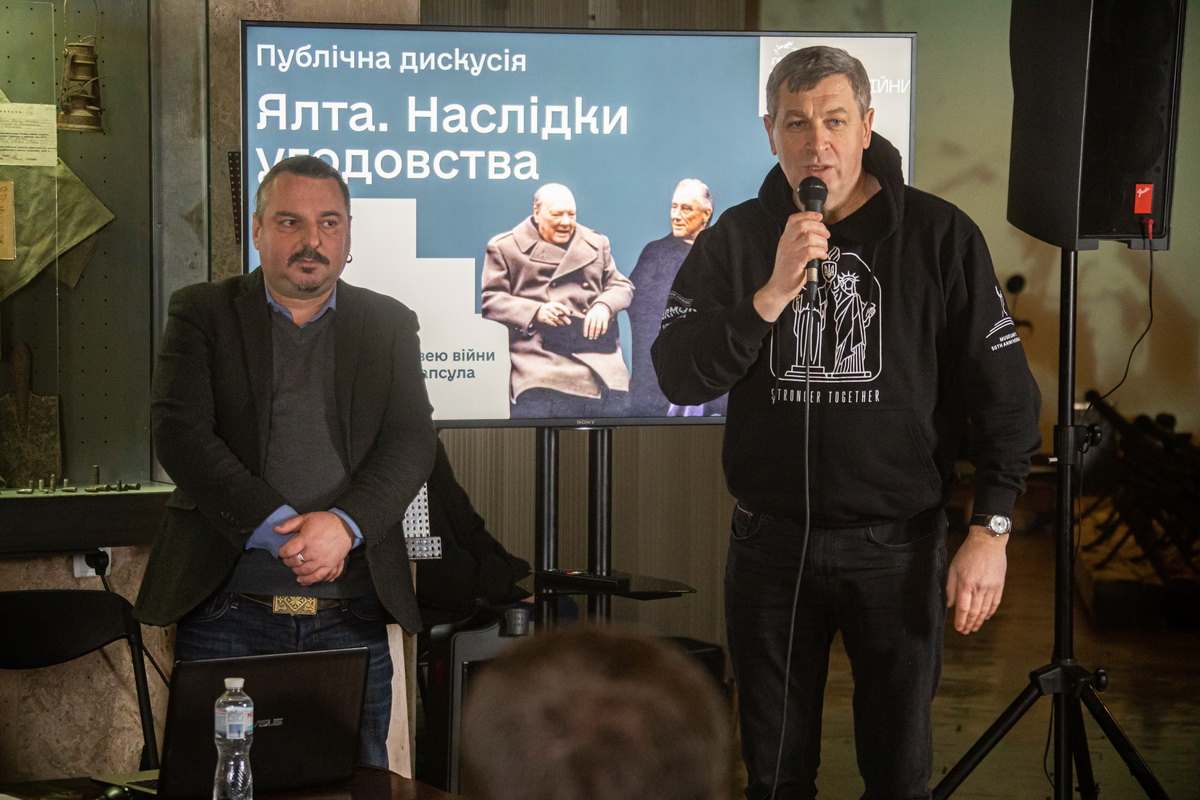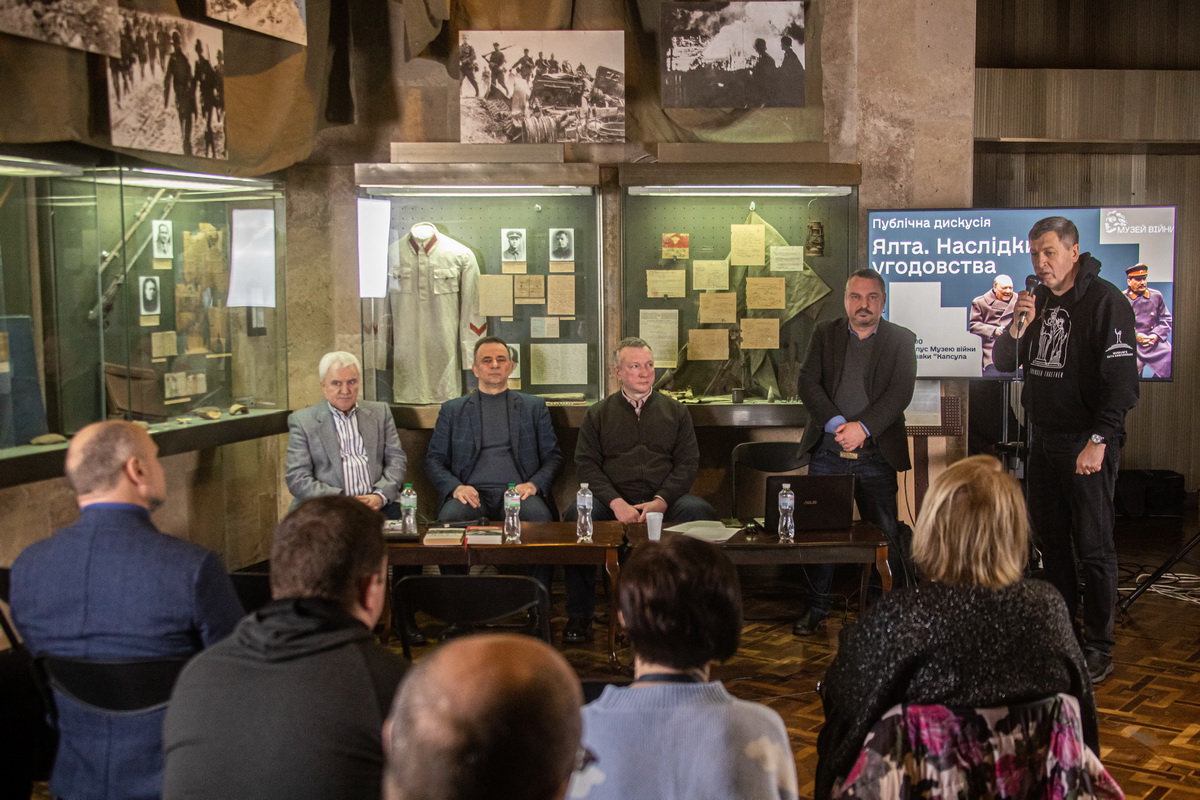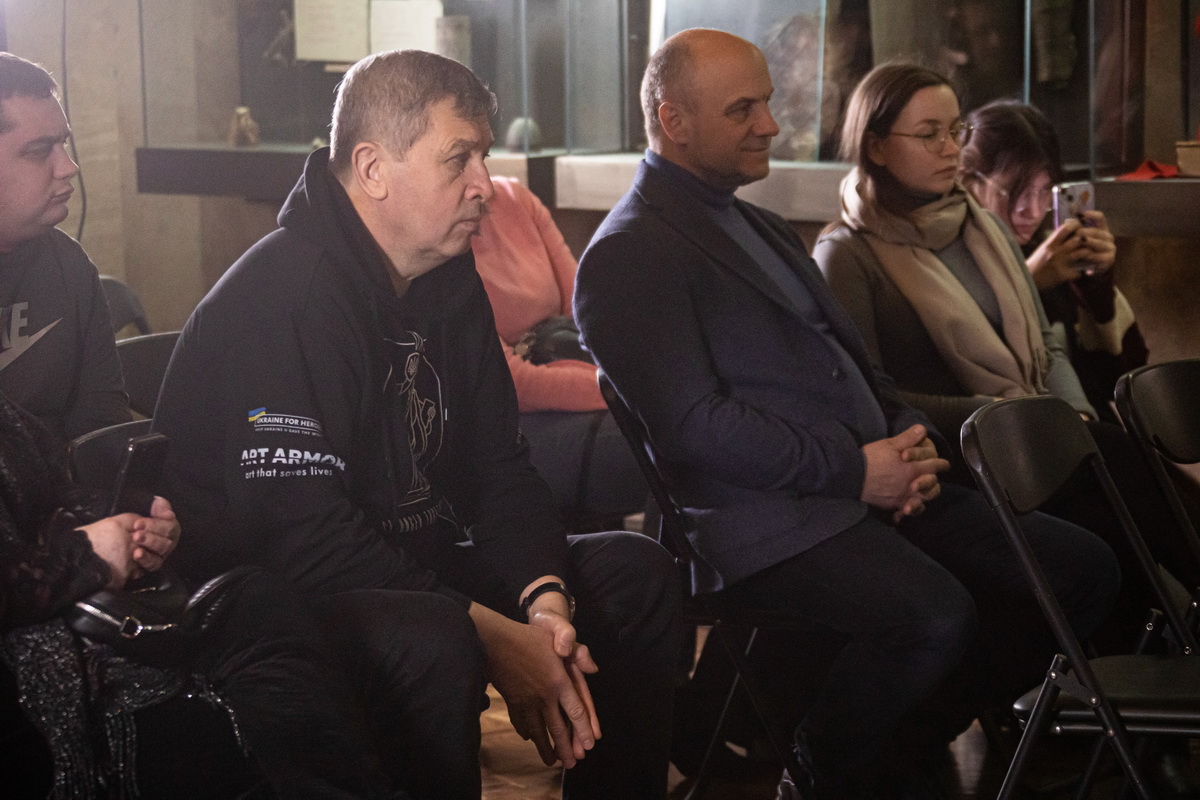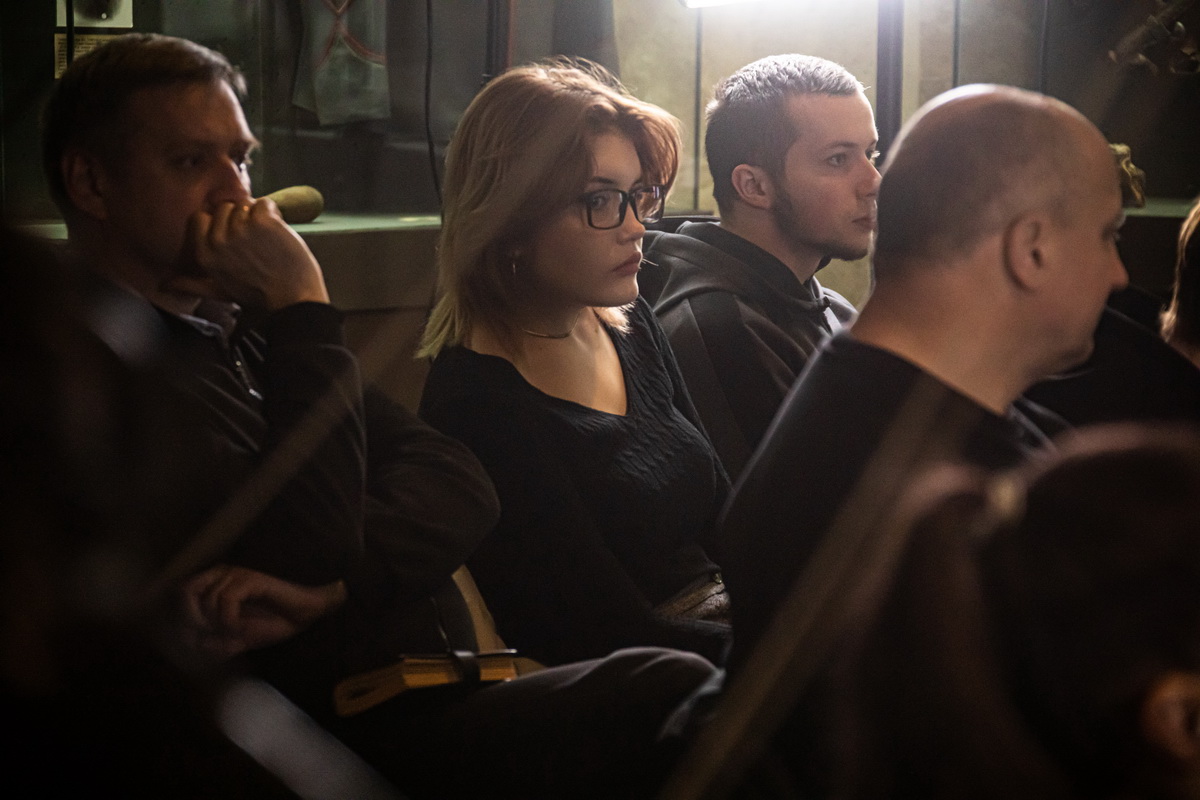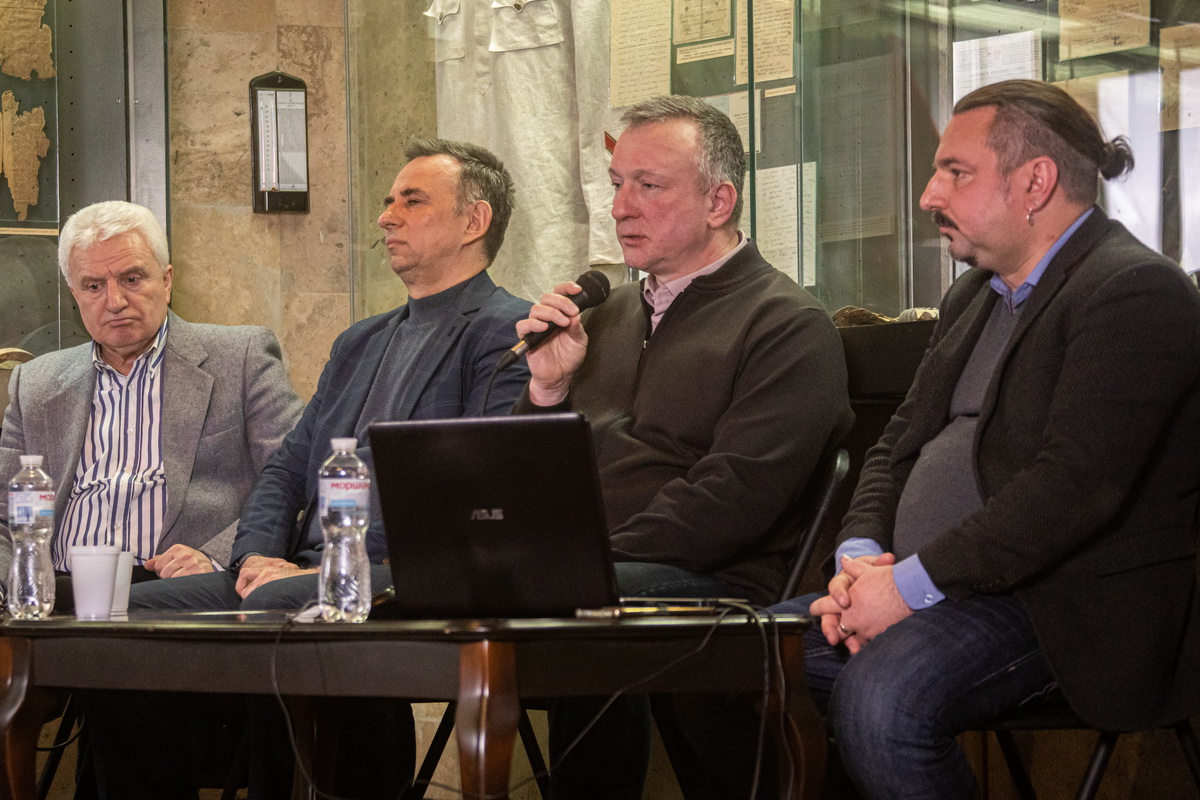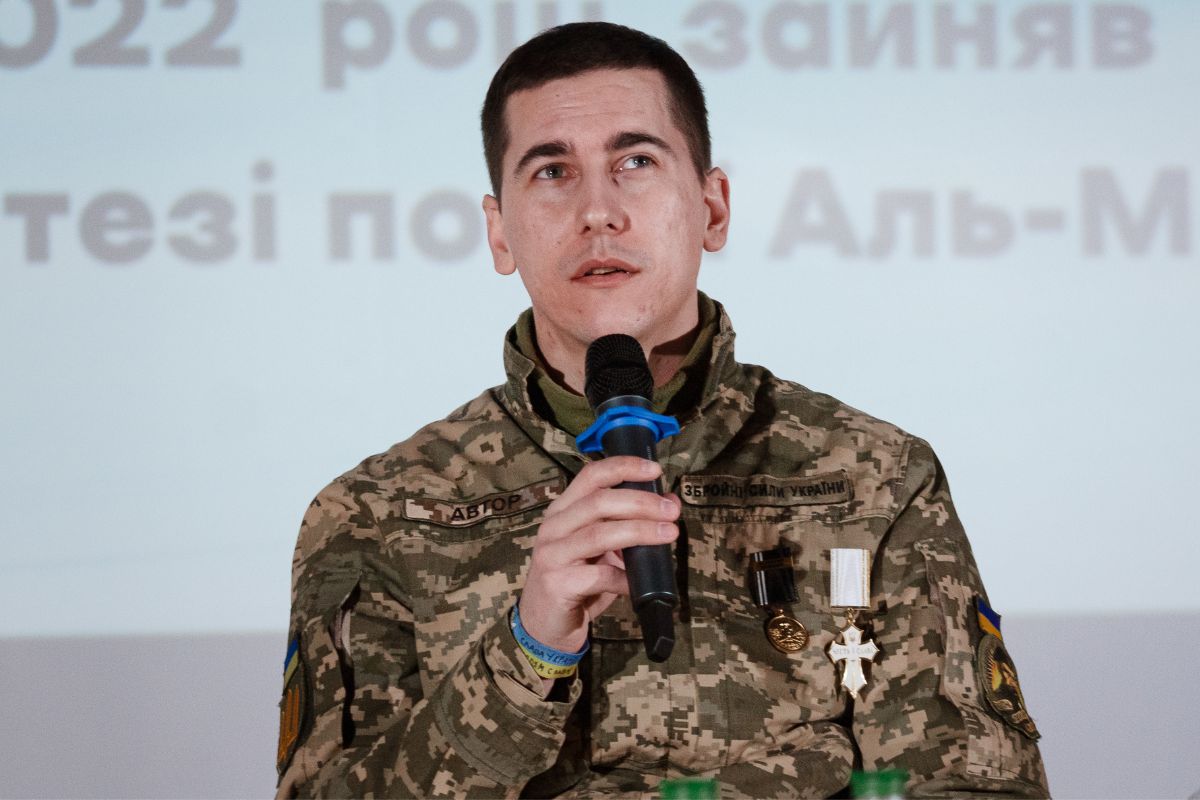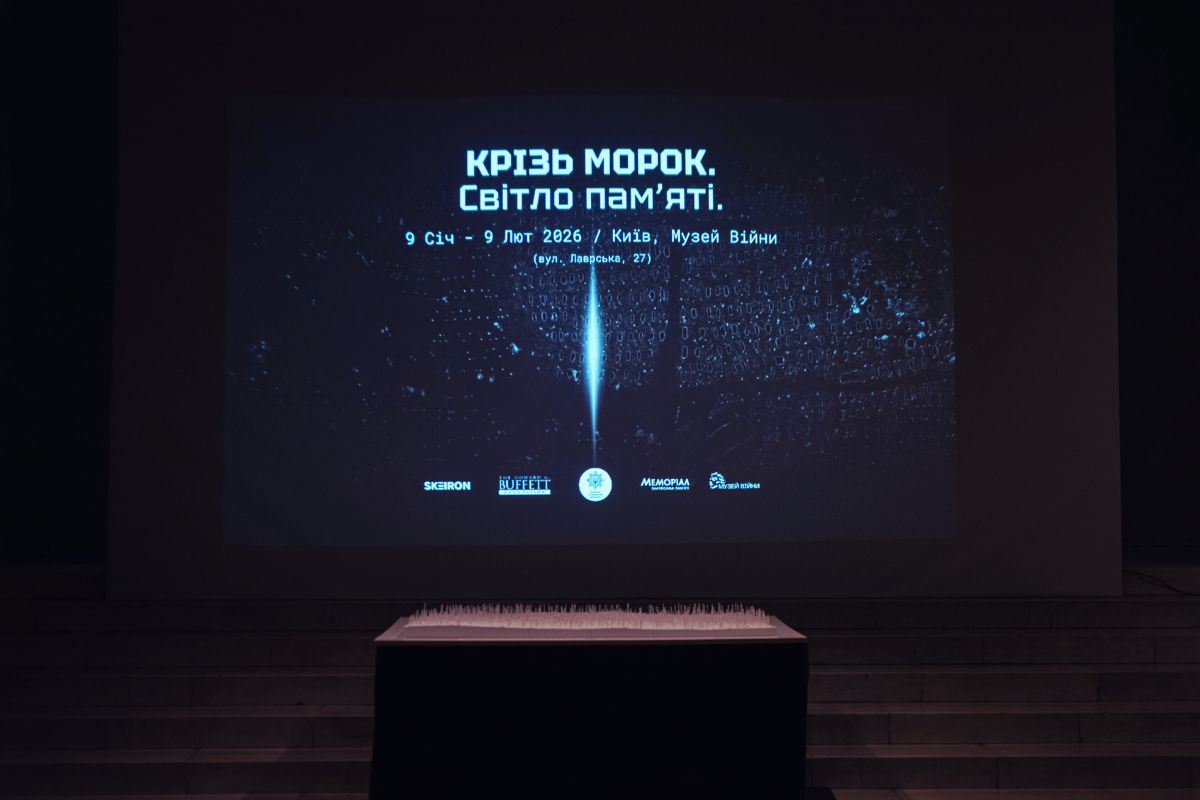On February 11, 2025, on the 80th anniversary of the end of the Yalta Peace Conference, a public discussion "Yalta. Consequences of Concessions" was held at the War Museum.
Its participants were:
- PhD Yurii Savchuk, Director General of the War Museum;
- Professor, Doctor of Science in History Oleksandr Lysenko, Head of the Department of Military and Historical Studies of the Institute of History of Ukraine;
- Doctor of Science in History Yurii Nikolaiets, Head of the Department of Political Culture and Ideology of the Kuras Institute of Political and Ethno-National Studies;
- Professor, Doctor of Science in History Oleh Mashevskyi, Head of the Department of New and Contemporary History of Foreign Countries, Faculty of History, Taras Shevchenko National University of Kyiv.
In his opening speech, Yurii Savchuk noted that this topic personally interests him very much, since it "...there is a very noticeable connection between academic research and what we do in practice: politicians not only of Ukraine, but of the world declared that this week would be the most active in terms of world global diplomacy, decision-making on the future structure of Europe and the world, therefore today’s conversation is more relevant and important than ever for a comprehensive and broader understanding of the consequences of World War II and the direct connection of those events with today’s events."
The moderator of the meeting, senior researcher, PhD Roman Kabachii, prepared footage from the Soviet propaganda film-chronicle "Tehran. Yalta. Potsdam..." (1985) for viewing and introduction into the context and consequences of the 1945 conference in Crimea.
Yurii Nikolaiets drew attention to several aspects that were demonstrated in the film: “In this film, the word "peace" was repeated very often. The emphasis was on the fact that the parties negotiating in Yalta were thinking about a stable peace in Europe, so that Germany would never again threaten peaceful coexistence. But did the Soviet Union, thinking about the Third World War and not completely demobilizing the army by 1952, really think about this peace? Second: we all know about the Berlin crisis of 1948–1949, about Hungary in 1956, about Czechoslovakia in 1968. In 1985, the Soviet troops were in Afghanistan. In fact, in Yalta, by writing down the "force of law" on paper, the parties were aware that they had managed to achieve this by force."
Oleh Mashevskyi emphasized the role of the United States and President Roosevelt personally in the achievements of the Yalta Conference. He noted that Franklin Delano Roosevelt had two main goals, and he achieved them: an agreement with Stalin on the entry of the USSR into hostilities with Japan “to save millions of American lives” and the introduction of a new world order in the form of the UN and the UN Security Council. "If we talk about the Western world, everyone had their own interests. In the creation of the UN, Roosevelt saw US control over this organization and financial flows in the world. As for Churchill, he was interested in the preservation of the British Empire and security in Europe, the fate of Central and Eastern Europe. Everyone tried to play their game behind each other’s backs – both Roosevelt and Churchill, so they failed to present a united front. "At that time, it didn’t seem to them that they were handing over Eastern Europe to Stalin into a de facto catastrophe," Oleh Mashevskyi emphasized.
Answering the moderator’s question whether "Yalta" was a tragedy for the peoples of Eastern Europe, over whom the "Iron Curtain" was lowered, and for Ukrainians in particular, who were "cut" by the Curzon Line, deporting half a million residents of Chełm Land, Nadsanie, and Lemko Region to the Ukrainian SSR, Oleksandr Lysenko said: "This question outlines the situation in a sharp way. No one, except Stalin, practiced such mass resettlement. With his experience, these deportations turned into real "social engineering". In this way, the ethnic, cultural, and religious unification of many regions took place, primarily Ukraine, when Stalin outlined the situation with the Polish-Ukrainian confrontation, which he knew perfectly well, and he went for this population transfer. In Yalta, he demonstrated how he could solve such problems – to separate large communities that were in conflict, and on the other hand – to solve the Polish question with the purely physical presence of his troops."
The participants of the discussion also paid a lot of attention to the analogies and parallels between the decisions of "Yalta", which affected both large and small nations, and the attempts of the current Kremlin dictator Putin to persuade representatives of modern democracies to a similar solution. In particular, Yurii Nikolaiets noted: "Of course, we see the "Weimar syndrome", the desire to participate in negotiations similar to Yalta. But at the time when those negotiations were held, Stalin’s troops were stationed in Eastern Europe. Putin has neither political, military, nor economic power. If Putin wants to speak in Yalta, this is a reminder to the world that Crimea is supposedly Russian territory. This is an attempt to achieve the opportunity to talk to the leading countries of the world, without having the corresponding power, without having the influence that the Russian leader is counting on. The "Second Army of the World" was unable to achieve the set goals in a short time and is in a positional deadlock."
The conversation ended with a mutual wish to sign a just peace for Ukraine in Ukrainian Crimea, in Ukrainian Yalta.
